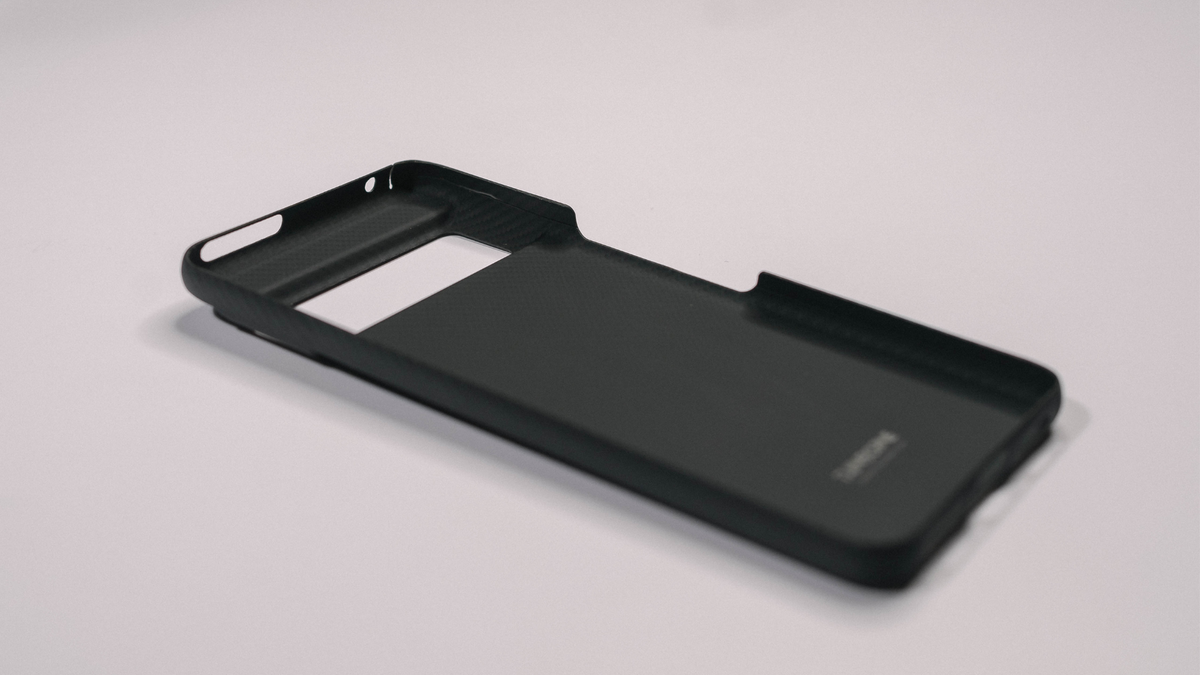
Is It Worth Buying a Thin Phone Case?
|
|
Time to read 4 min
|
|
Time to read 4 min
People often wonder if sleek, ultra-thin phone case protect their smartphones adequately. While these slim cases offer an appealing aesthetic and comfortable grip, their protective capabilities are typically less robust than those of rugged cases. Many individuals opt for the latter due to the enhanced drop protection they deliver despite their bulkier design.
The debate over the effectiveness of slim, thin phone cases is a common one, but their popularity remains high due to their design and convenience.
Today, we'll dive deeper into these aspects, helping you decide when choosing the right case for your phone.
The most apparent difference between a thin phone case and a rugged phone case is their size. However, there's more to their design than meets the eye.
Rugged phone cases usually feature a multi-layer design with an outer shell that absorbs the impact of a fall and an inner lining that provides shock absorption. They also have raised edges to prevent the phone from landing flat on its display or camera module, thereby protecting its display or back glass from cracking in case of a fall.
This type of case aims to turn your phone into a tank, protecting it from severe drops and falls.
On the other hand, slim, thin phone cases usually sport a more simplistic, single-layer design. While they can ward off scratches, their ability to absorb shock is significantly lower compared to rugged cases. If a phone encased in a slim cover were to fall from waist height, the outcome would be uncertain.
While slim, thin phone cases offer less protection, they provide a sleek and minimalistic look that many users prefer. They're typically lighter, more comfortable to hold, and easily fit into pockets, contributing to their popularity despite the trade-off in protection.
The most popular extremely thin phone case type is the Aramid fiber case. It barely adds any bulk and makes your phone feel naked.
For instance, ThinBorne is one of the best aramid fiber thin cases.
A diverse demographic loves slim thin phone case. Young professionals often lean towards these sleek designs as they complement their polished image.
Individuals who value aesthetics and minimalism also tend to gravitate towards these cases. They're looking for something that doesn't detract from the design of their phone but still offers some level of protection.
Age can play a significant role in this choice. The younger crowd, particularly millennials and Gen Z, often prefer slim, thin phone cases because they blend well with trendy and modern gadgets. However, it's not just limited to them. Many older adults who appreciate simplicity and convenience also opt for slim cases.
If we look at professions or hobbies, people involved in outdoor activities like hiking or construction work might steer clear of slim cases due to the risk factor.
On the other hand, office workers, creatives, and tech enthusiasts often favor the slim case for its lightweight and stylish appeal. It's about finding that balance between protection and style. For many, slim cases hit the mark.
The burning question: Do slim cases offer enough protection for our precious smartphones? Well, it's not a simple yes or no answer.
According to sources, a slim, thin phone case can shield your phone from everyday bumps and light drops. However, they might not be as protective as their bulkier counterparts in more extreme situations.
So, how do these slim cases offer protection? It's all about the materials and technology used.
For instance, Thinborne slim cases use Aramid fibers, a high-strength material used in aerospace and military applications. This gives the thin phone case impressive durability without adding much thickness.
Carbon fiber is another popular choice. It's lightweight yet solid - think sports cars and racing bikes. These materials can absorb shocks and resist scratches, offering protection that defies their slim profiles. Thinborne's thin phone case not only maintains your phone's aesthetic appeal but also provides a decent level of protection for everyday use.
Like any other product, slim thin phone case come with their own set of advantages and disadvantages. Plus, they're lightweight and compact, making them convenient for everyday use.
They maintain the aesthetic appeal of your phone, allowing the design and form factor of the device to shine through. But there's a trade-off - slim thin phone case may not provide the same level of protection from high-impact drops compared to their rugged counterparts. While they can handle minor bumps and scratches, they might not fare well in protecting your phone during significant falls.
Your personal preferences and usage patterns are crucial in deciding whether to opt for a slim thin phone case. I
f you're meticulous about taking care of your phone and rarely drop it, a slim thin phone case would work well for you. It offers enough protection for regular use while keeping your phone stylish and pocket-friendly.
However, a rugged case might be better if you're more adventurous or prone to dropping your phone.
Ultimately, the decision comes down to balancing form and function. While slim cases certainly are attractive, it's essential to consider your individual needs, lifestyle, and the specific demands you'll be placing on your phone case.
